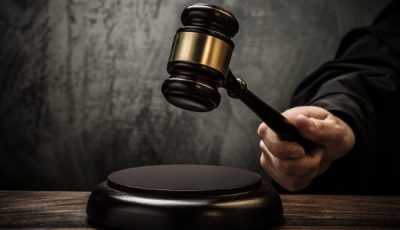Appeals Court: IP Address Owner Not Liable for Third-Party Infringement
 PORTLAND – In a decision issued late last month, the U.S. Court of Appeals for the Ninth Circuit upheld a lower court’s ruling which held that a “bare allegation that the defendant was the registered subscriber of an Internet Protocol address associated with infringing activity was insufficient to state a claim for direct or contributory infringement.”
PORTLAND – In a decision issued late last month, the U.S. Court of Appeals for the Ninth Circuit upheld a lower court’s ruling which held that a “bare allegation that the defendant was the registered subscriber of an Internet Protocol address associated with infringing activity was insufficient to state a claim for direct or contributory infringement.”
While the case involved a mainstream film company, Cobbler Nevada, the core issues at hand often arise in copyright infringement lawsuits filed against internet users who illegally download adult entertainment videos through BitTorrent networks.
In the case reviewed by the 9th Circuit, Cobbler Nevada v. Gonzales, the process of arriving at suing the defendant is one which will sound very familiar to those who have followed similar cases involving adult entertainment studios as plaintiffs.
As the court summarized the facts of the case, after Cobbler Nevada traced infringement of its copyrights to a specific IP address, the company filed suit against the John Doe IP address for direct and contributory copyright infringement.
The company subsequently learned the IP address was registered to Thomas Gonzales, who operated an adult foster care home. Despite the fact the company’s attorney concluded “it does not appear that [Gonzales] is a regular occupant of the residence or the likely infringer,” Cobbler Nevada amended its complaint to name Gonzales as the sole defendant, alleging that he directly infringed by copying and distributing copyrighted works himself or, in the alternative, contributed to another’s infringement by failing to secure his internet connection.
Writing for the three-judge appellate panel, Judge M. Margaret McKeown found that the district court “properly dismissed Cobbler Nevada’s claims.”
“The direct infringement claim fails because Gonzales’s status as the registered subscriber of an infringing IP address, standing alone, does not create a reasonable inference that he is also the infringer,” McKeown wrote. “Because multiple devices and individuals may be able to connect via an IP address, simply identifying the IP subscriber solves only part of the puzzle. A plaintiff must allege something more to create a reasonable inference that a subscriber is also an infringer.”
The panel also found that Cobbler’s contributory copyright infringement claim lacked foundation, because “without allegations of intentional encouragement or inducement of infringement, an individual’s failure to take affirmative steps to police his internet connection is insufficient to state a claim.”
In upholding the lower court’s ruling, the appellate panel acknowledged the difficulty rightsholders face in definitively identifying infringers who obtain copyrighted materials via BitTorrent and similar technologies but noted that those difficulties don’t change the standards of evidence or proof at issue in such a lawsuit.
“Although copyright owners can often trace infringement of copyrighted material to an IP address, it is not always easy to pinpoint the particular individual or device engaged in the infringement,” McKeown wrote in the decision. “While we recognize this obstacle to naming the correct defendant, this complication does not change the plaintiff’s burden to plead factual allegations that create a reasonable inference that the defendant is the infringer.”
As for the contributor copyright infringement claim, the court found that Gonzales’ failure to “police” the internet service offered residents of the adult foster care home simply doesn’t rise to contributory infringement.
Citing Perfect 10 v. Amazon, McKeown wrote that the 9th Circuit has “adopted the well-settled rule that ‘one infringes contributorily by intentionally inducing or encouraging direct infringement,’” and that nothing Gonzales did (or didn’t do) in this case can be construed as such behavior.
“Cobbler Nevada’s contributory infringement claim is premised on a bare allegation that Gonzales failed to police his internet service,” McKeown wrote. “This perfunctory allegation, without more, does not sufficiently link Gonzales to the alleged infringement.”
Finally, the appellate panel also found the district court “did not abuse its discretion” in awarding Gonzales attorney’s fees after dismissing Cobbler’s claims.
“The district court properly applied the Supreme Court’s ‘Fogerty factors’ to the particulars of this case,” McKeown wrote, referring to standards set in Fogerty v. Fantasy, Inc. “To begin, the court focused on the objective unreasonableness of the losing party’s litigating position, a factor that carries ‘substantial weight.’ Specifically, the court flagged as unreasonable Cobbler Nevada’s decision to name Gonzales as the defendant, even after concluding that Gonzales was not ‘a regular occupant of the residence or a likely infringer.’”
In an observation on which adult studios filing similar cases might be wise to reflect, McKeown observed the district court “also considered deterrence” in awarding attorney’s fees and costs to Gonzales.
“(The district court) reasoned that awarding fees would deter Cobbler Nevada from an ‘overaggressive pursuit of alleged infringers without a reasonable factual basis’ while encouraging defendants with valid defenses to defend their rights,” McKeown wrote.
The appellate court’s full opinion can be read here.













